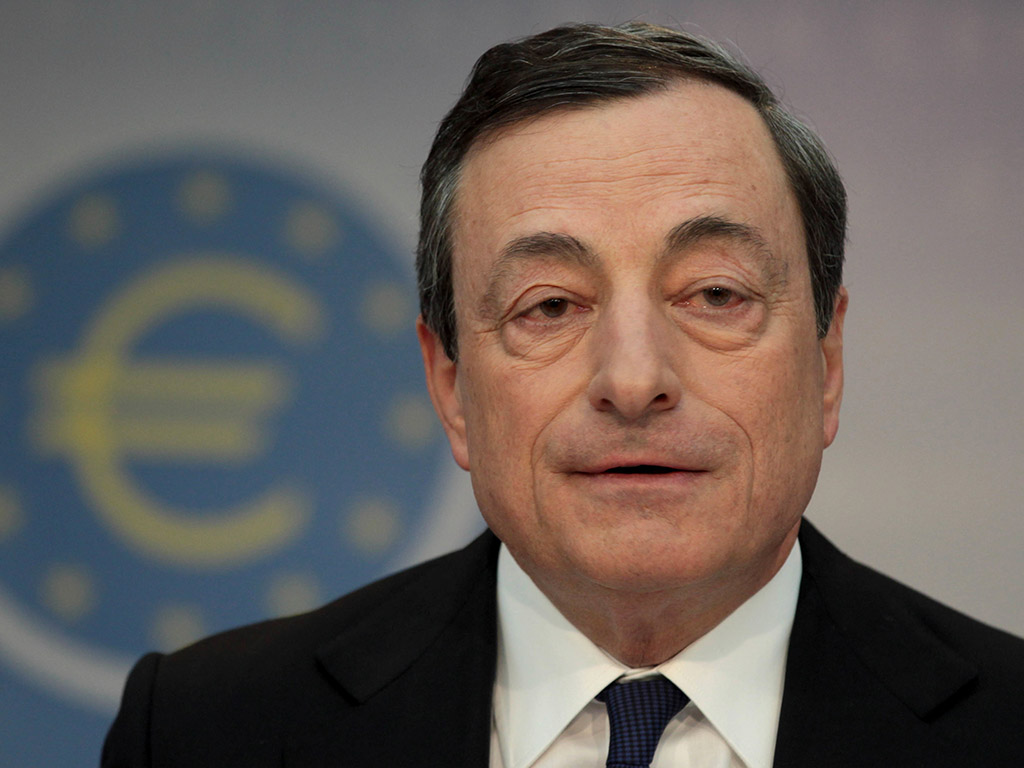
Despite eurozone inflation hitting a four-year low in March, the ECB has again reaffirmed its “unanimous commitment” to keeping its benchmark interest rate at a record low 0.25 percent. What’s more, the deposit rate will remain at zero percent, and the marginal-lending rate at 0.75 percent, with the bloc’s performance falling in line with ECB expectations.
“Incoming information confirms that the moderate recovery of the euro area economy is proceeding in line with our previous assessment. At the same time, recent information remains consistent with our expectation of a prolonged period of low inflation followed by a gradual upward movement in HICP inflation rates,” said the ECB President Mario Draghi in a press conference shortly after the announcement was made.
In his press conference Draghi refused to rule out the use of unconventional measures in boosting the bloc’s recovery
The ECB’s forecast represents a rather more optimistic view than the one shared by some analysts, who believe the threat of deflation to be looming over the bloc. Earlier figures showed that inflation had fallen to 0.5 percent through March, a far cry from the ECB’s target of two percent. The results are made to look even more disconcerting when taking into account that inflation has spent six months now in “the danger zone” – so-called by the ECB to refer to inflation below one percent.
Although the bank’s announcements were predictably tame in terms of policy changes, in his press conference Draghi refused to rule out the use of unconventional measures in boosting the bloc’s recovery. “The governing council is unanimous in its commitment to using also unconventional instruments within its mandate in order to cope effectively with risks of a too prolonged period of low inflation,” he said.
The bank’s decision comes a short few days after the IMF’s head Christine Lagarde warned of the dangers for Europe if inflation were to remain at its present low rate. “A potentially prolonged period of low inflation can suppress demand and output – and suppress growth and jobs. More monetary easing, including through unconventional measures, is needed in the euro area to raise the prospects of achieving the ECB’s price stability objective,” she told reporters in Washington DC.
When asked about Lagarde’s comments, Draghi said that the ECB valued the institution’s advice, though stressed that the viewpoints of the Governing Council and the IMF are in a sense very different.


